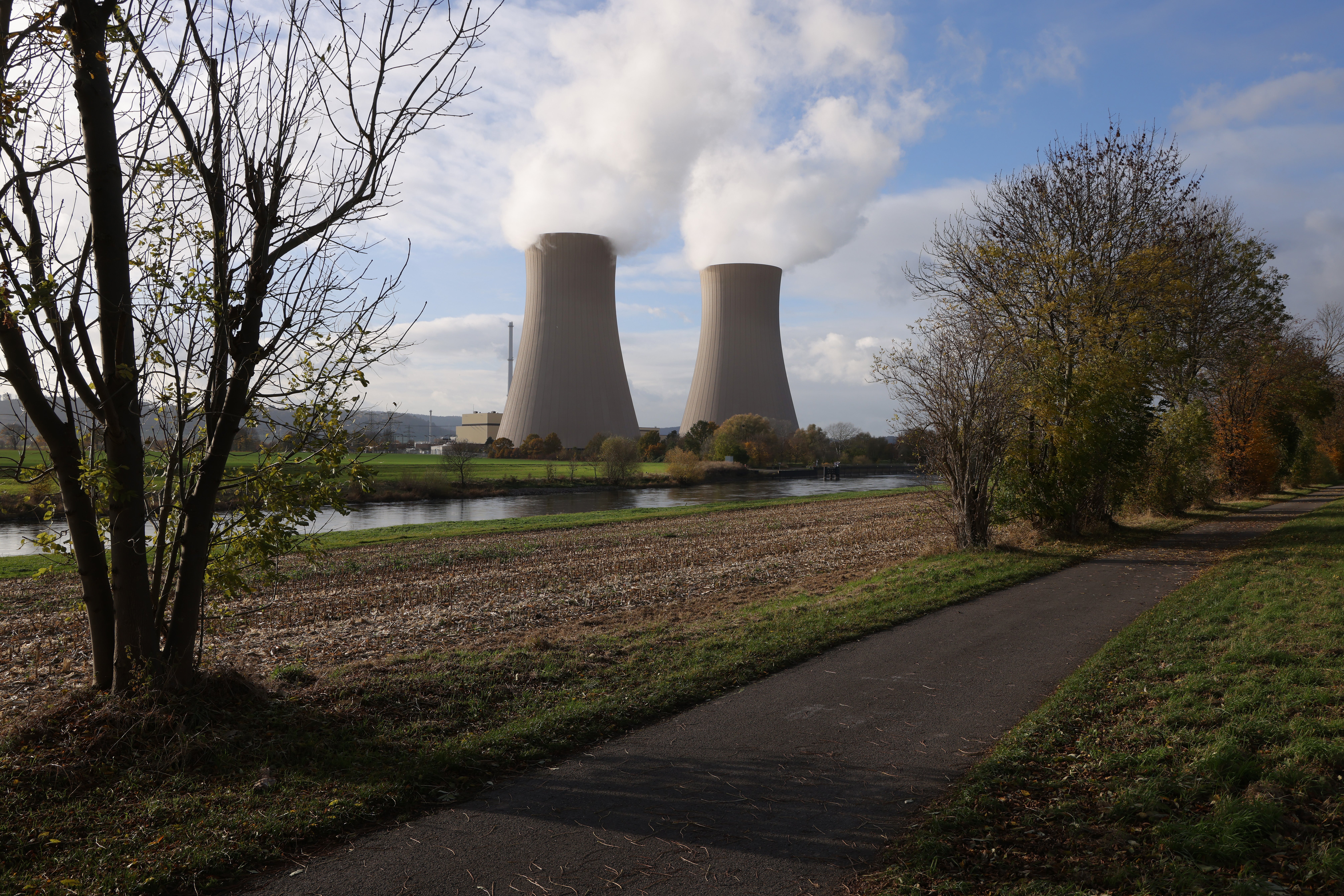Germany to pull the plug on three of its last six nuclear plants
The country’s last three nuclear power plants will be turned off by the end of 2022

Germany will pull the plug on three of its last six nuclear power stations on Friday, another step towards completing its withdrawal from nuclear power as it turns its focus to renewables.
The government decided to speed up its phasing out of nuclear power following Japan’s Fukushima reactor meltdown in 2011 when an earthquake and tsunami destroyed the coastal plant in the world’s worst nuclear disaster since Chernobyl 25 years earlier.
The reactors of Brokdorf, Grohnde and Gundremmingen C, run by utilities E.ON and RWE, will be shut down on Friday after three and half decades in operation.
The last three nuclear power plants - Isar 2, Emsland and Neckarwestheim II - will be turned off by the end of 2022.
The phase-out of an energy deemed clean and cheap by some is an irreversible step for Europe’s biggest economy, facing ambitious climate targets and rising power prices.
“For the energy industry in Germany, the nuclear phase-out is final,” said Kerstin Andreae, the head of energy industry association BDEW.
The six nuclear power plants contributed to around 12 per cent of electricity production in Germany in 2021, BDEW preliminary figures showed. The share of renewable energy was almost 41 per cent with coal generating just under 28 per cent and gas around 15 per cent.
Germany aims to make renewables meet 80 per cent of power demand by 2030 through expanding wind and solar power infrastructure.
The new government, which plans to step up climate protection efforts, stood by the nuclear power phase-out in its coalition agreement.
Economy and Climate Protection Minister Robert Habeck on Wednesday said he did not see the anti-nuclear consensus weakening in Germany.
Environmental groups welcomed the move but warned that 2022 was not the real end of the nuclear era in Germany.
“We have to say that there will still be uranium enrichment plants in Germany, like the one in Gronau,” Arne Fellermann, a manager at the BUND environmental group, told Reuters.
“There is also a research reactor in Garching that still works with weapons-grade uranium,” Mr Fellermann added.
Asked about possible job losses, Gundremmingen mayor Tobias Buehler said the plant’s employees would be busy with dismantling the reactor after the shutdown.
“And this period of dismantling will certainly take another one or two decades,” Mr Buehler said.
Total costs for the dismantling are estimated by E.ON at 1.1 billion euros (£.92 billion) per plant. In 2020, E.ON made provisions of 9.4 billion euros for the nuclear post-operational phase, including dismantling the facility, packaging and cleaning up the radioactive waste.
The dismantling is expected to be completed by 2040.
Japan’s government on Tuesday mapped out a plan for releasing contaminated water from the crippled Fukushima nuclear plant into the sea, angering neighbouring China and South Korea.
Reuters
Join our commenting forum
Join thought-provoking conversations, follow other Independent readers and see their replies
Comments
Bookmark popover
Removed from bookmarks